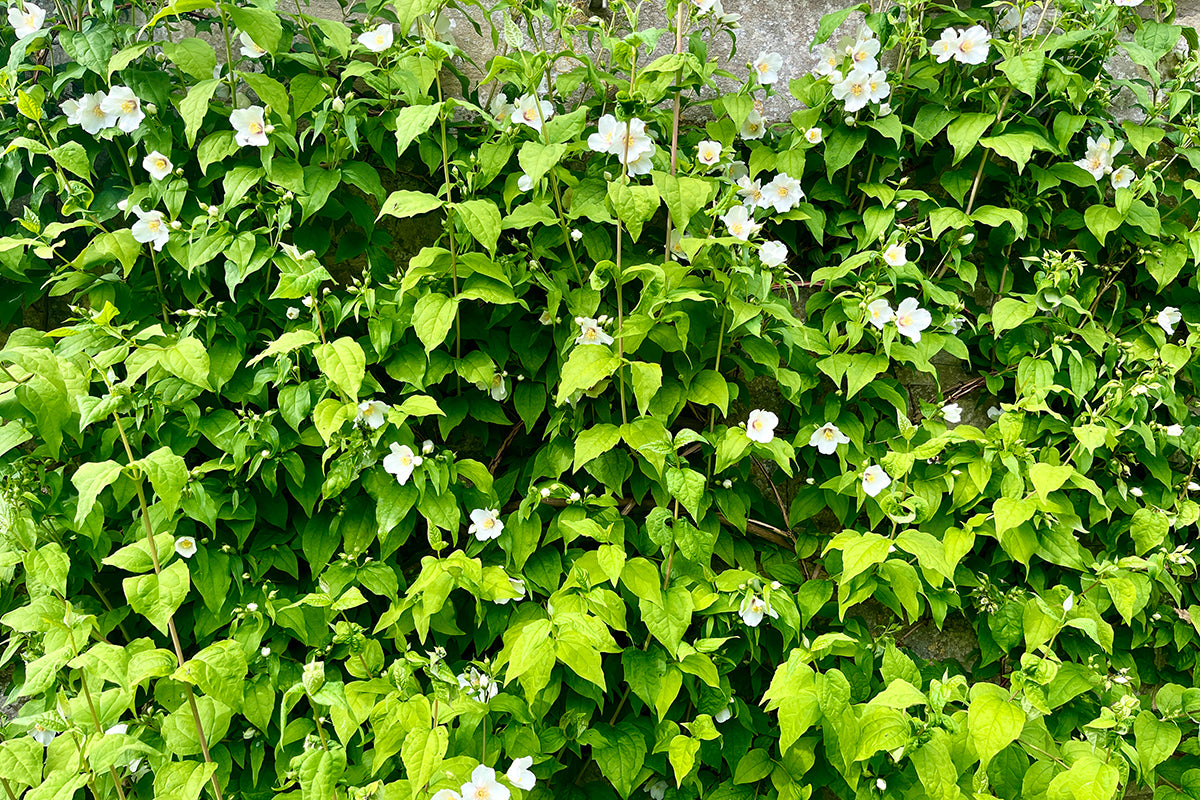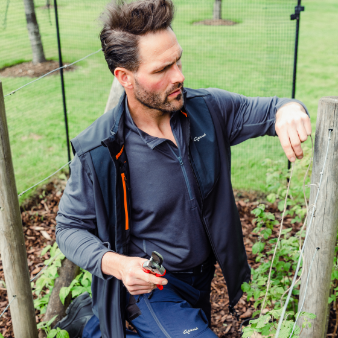Apical Dominance

We’ve written about our wall-trained Philadelphus before and it surprises us with its beauty every year. Several years ago and taking up too much space within the north-facing border we decided to train it up against the cottage wall. It’s an unusual practice we hadn’t heard of so we were a little apprehensive in our approach. We needn’t have worried.
Philadelphus, or the mock orange as many call it, flowers on last year's wood, making for easy management and reliable flowering. Each winter we cut out the old flowered stems from that year and tie in any new growth - there’s usually plenty - though we must be careful as its brittle stems can only withstand a certain amount of manipulation. We like to pull the stems down into a horizontal position before tying onto the wires and in doing so take away the ‘apical dominance’ of the stem - the propensity for flowers to form on the tips. This encourages flowering all along the stem and brings flowers down to eye level producing an even spread across the wall rather than have them wavering out of sight in the gutters.
Roses behave in a similar way. If you have an old favourite that only puts out flowers amongst the eaves, pull down any pliant stems and tie them into the wall on wires or nails set into the mortar. Removing any old wood is beneficial too. It often seems brutal but the removal of old ancient stems will encourage the rose to send out young fresh shoots. These vigorous stems will often be straight and whippy and can be manipulated onto wires or nails quite easily resulting in eye- and very importantly, nose-level blooms.







